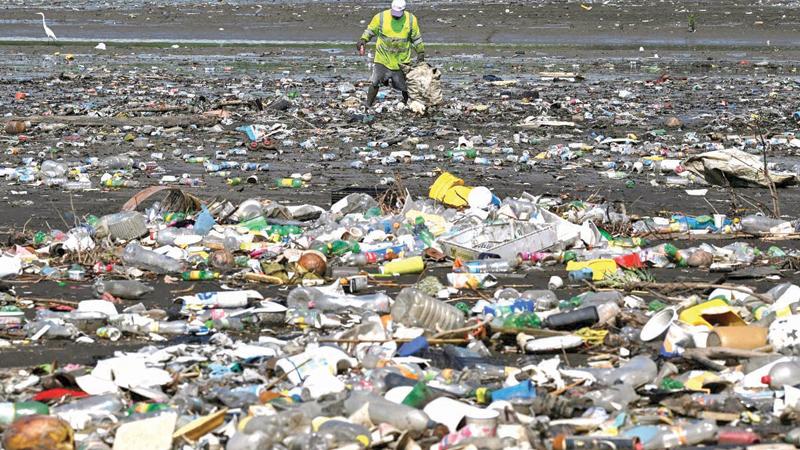
Pollution from plastics is a global emergency in need of a robust UN treaty, according to a report.
The Environmental Investigation Agency (EIA) says there’s a cascade of evidence of harm from plastics. It argues that the plastic pollution threat is almost equivalent to climate change.
The air we breathe now contains plastic micro particles, there’s plastic in Arctic snow, plastic in soils and plastic in our food. It’s reported, for instance, that about 20 elephants in Thailand have died after eating plastic waste from a rubbish dump.
The authors urge nations to agree a UN treaty with binding targets toreduce both plastic production and waste.
“There is a deadly ticking clock counting swiftly down,” said the EIA’s Tom Gammage. “If this tidal wave of pollution continues unchecked, the anticipated plastics in the seas by 2040 could exceed the collective weight of all fish in the ocean.”
The United Nations has identified three existential environmental threats - climate change, biodiversity loss and pollution - and concluded that they must be addressed together.
Multilateral agreements on biodiversity loss and climate have existed for nearly 30 years (although they have failed to halt CO2 emissions or protect the natural world). The idea of a dedicated plastics treaty has been opposed by some nations in recent years.
But over 100 countries, including the UK, are said to favour a treaty being proposed at the next UN Environment Assembly in February and March.
Sources say outright opposition is weakening, although there’s a dispute as to how strict the treaty should be, and whether it should be legally binding or voluntary.
US President Joe Biden has said that the US now supports a global agreement, previously resisted by former President Donald Trump.
It’s not clear, though, whether he can win approval from Congress, as most plastics are made from oil and gas - and they’re both produced in the US.
Japan is said to be trying to diminish the ambition of the treaty. The Arab Gulf states and China have been silent so far. China produces most “virgin plastic”, although the US and UK are said to be the biggest producers of waste per person.
Launching the EIA report, Gammage said, “The visible nature of plastic pollution has generated huge public concern but the vast majority of plastic pollution impacts are invisible.
“The damage done by rampant overproduction of virgin plastics and their lifecycle is irreversible - this is a threat to human civilisation and the planet’s basic ability to maintain a habitable environment.
It’s becoming almost as serious as the threat from climate change.”
Prof. Richard Thompson from Plymouth University, an authority on plastics, told BBC News a UN treaty should focus on the full life-cycle analysis of plastics.
He said, “The underlying cause of the problem is rooted in unsustainable levels of production and consumption.
“Advocating policies that merely promote the use of plastics that are ‘recyclable’ won’t be effective unless there’s a local infrastructure to collect, separate, and viably recycle those plastics.
“Polices to promote the use of ‘compostable’ plastics will only be effective if there is appropriate local infrastructure to handle that waste stream,” the professor said. - BBC
